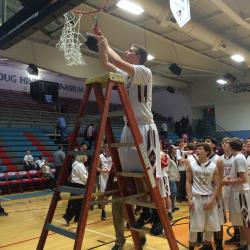Storyline: I don’t think notorious bank robbers, Bonny and Clyde, robbed anybody the way universities are robbing athletes.
In just a few weeks–after a month of training camp and long practices in the summer sun–college football players will be able to look forward to playing games on the gridiron.

Courtesy: sites.psu.edu
But that’s all they’ll have to look forward to: the NCAA still doesn’t allow them to be reciprocated for their hard work.
It’s time for that to change. I believe that college athletes need to be paid. I say that for three reasons:
First, I believe college athletes are exploited.
Second, I believe that paying players will go a long way in reducing the number of scandals in NCAA sports.
And, third, the assertion that college athletes “are getting paid with a college education” doesn’t always hold true.
Being Exploited
The NCAA claims that student athletes are “amateurs” and that they need to be protected from “being exploited” by businessmen. Well, “being exploited” is something that has been in the rearview mirror for quite some time. But it’s not businessmen who are taking advantage of players, it’s the universities, conferences, and even the NCAA.

Courtesy: USA TODAY Sports
In a 2013 article by Time’s Sean Gregory, it was reported that Johnny Manziel was worth an estimated $225k during his playing days at Texas A&M. While “Johnny Football” didn’t see a dime of that money, the Aggies rolled in the dough, making millions during Manziel’s time in College Station.
And it’s not as though Manziel is the only player who has been exploited. In 2011 the Pac-12 signed a 12-year, $2.7 billion football contract with Fox Sports and ESPN. Did any of the conference’s players see any of that money? Of course not. That would mean, according to the NCAA, that they would “be exploited.”
But here’s the really ironic part: the NCAA makes the most from student athletes, bringing in annual revenue that surpasses $1 billion. The NCAA can’t protect student-athletes from something that it does to the athletes, namely, exploit them.
Fewer Scandals
Scandals happen all the time in college sports. There’s the Miami Hurricanes’ Ponzi scheme, the Oklahoma State performance-bonus scandal, and the recent Louisville sex scandal, to name just a few of the many scandals that have taken place in college sports over the years.

A madam published a book about her relationship with the Louisville basketball program (photo, WDRB.com)
So, what can be done to lower the number of scandals? As odd as it may seem one way is to pay players. The reason? Reverse psychology. An historical example is Prohibition. Many Americans who didn’t drink before Prohibition drank during Prohibition because alcohol was outlawed.
While legally paying student athletes won’t stop scandals altogether, it should reduce the number of money-related issues.
Paying student athletes will also lower other heinous episodes, such as sex scandals. Those types of scandals don’t leave a paper trail, which makes it harder for the NCAA to investigate situations. But, if the NCAA permits player compensation, then schools will have fewer reasons to “tiptoe” around NCAA regulations. There could result in fewer scandals.
Schools Don’t Always Provide Free Education
The primary claim people use against paying college athletes is that athletes are “already getting paid with a college education.”

Courtesy: shiftfrequency.com
But, in 2014, former North Carolina (UNC) football player, Mike McAdoo, proved that’s not always true. McAdoo sued the university for offering “paper classes,” that is, courses that require little or no academic effort other than keeping athletes eligible. According to McAdoo’s lawyers, these classes “dramatically diminished the value of an athlete’s education.”
And despite the fact that a college education can be quite valuable to a player, that education doesn’t come close to the contribution an athlete makes to his school. An athlete can bring in millions of dollars to his campus.
My take is this: I don’t think that the notorious Bonny and Clyde robbed anybody the way universities are currently robbing athletes.
******************************************************
I’m in no way proposing that student athletes sign big, multi-million dollar contracts. All I am saying is that they deserve reciprocation for hours of hard work that they put in.

Courtesy: exclusive.moneybriefs.com
Here’s my proposal: the NCAA needs to allow schools to split earnings with athletes. So, hypothetically, let’s say a school nets $200,000 from football. Under my system, that school would distribute $100,000 to players. Elite players and major contributors would earn a bonus to the base amount anytime the school uses their names in advertising or through the sale of merchandise.
The bottom line is that not paying student athletes is something that has gone on for far too long. It’s time for this injustice to come to an end.
NCAA President Mark Emmert: Blood is on your hands. It’s time for paying student-athletes to become legalized!














